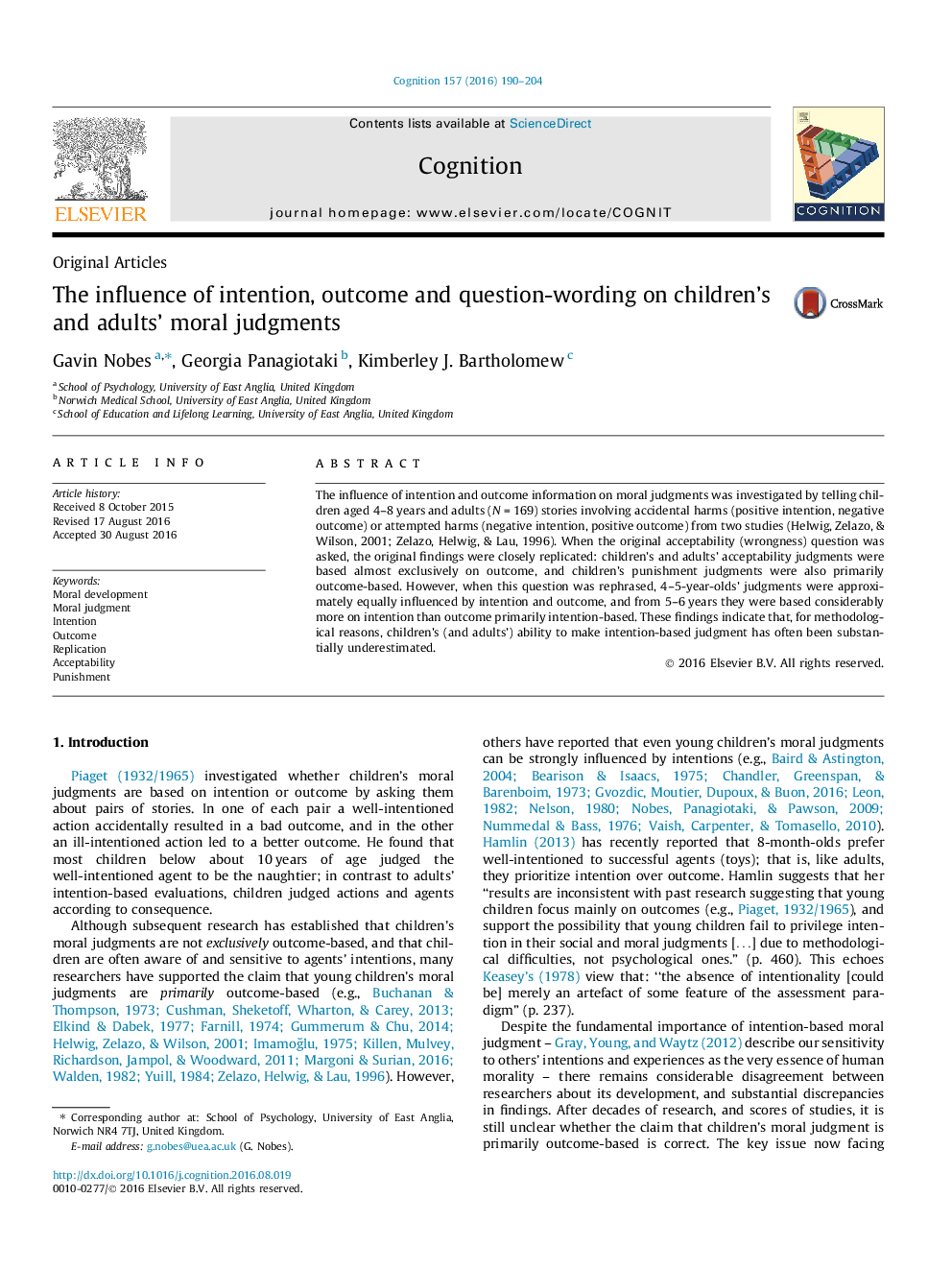| Article ID | Journal | Published Year | Pages | File Type |
|---|---|---|---|---|
| 7285758 | Cognition | 2016 | 15 Pages |
Abstract
The influence of intention and outcome information on moral judgments was investigated by telling children aged 4-8 years and adults (N = 169) stories involving accidental harms (positive intention, negative outcome) or attempted harms (negative intention, positive outcome) from two studies (Helwig, Zelazo, & Wilson, 2001; Zelazo, Helwig, & Lau, 1996). When the original acceptability (wrongness) question was asked, the original findings were closely replicated: children's and adults' acceptability judgments were based almost exclusively on outcome, and children's punishment judgments were also primarily outcome-based. However, when this question was rephrased, 4-5-year-olds' judgments were approximately equally influenced by intention and outcome, and from 5-6 years they were based considerably more on intention than outcome. These findings indicate that, for methodological reasons, children's (and adults') ability to make intention-based judgment has often been substantially underestimated.
Related Topics
Life Sciences
Neuroscience
Cognitive Neuroscience
Authors
Gavin Nobes, Georgia Panagiotaki, Kimberley J. Bartholomew,
